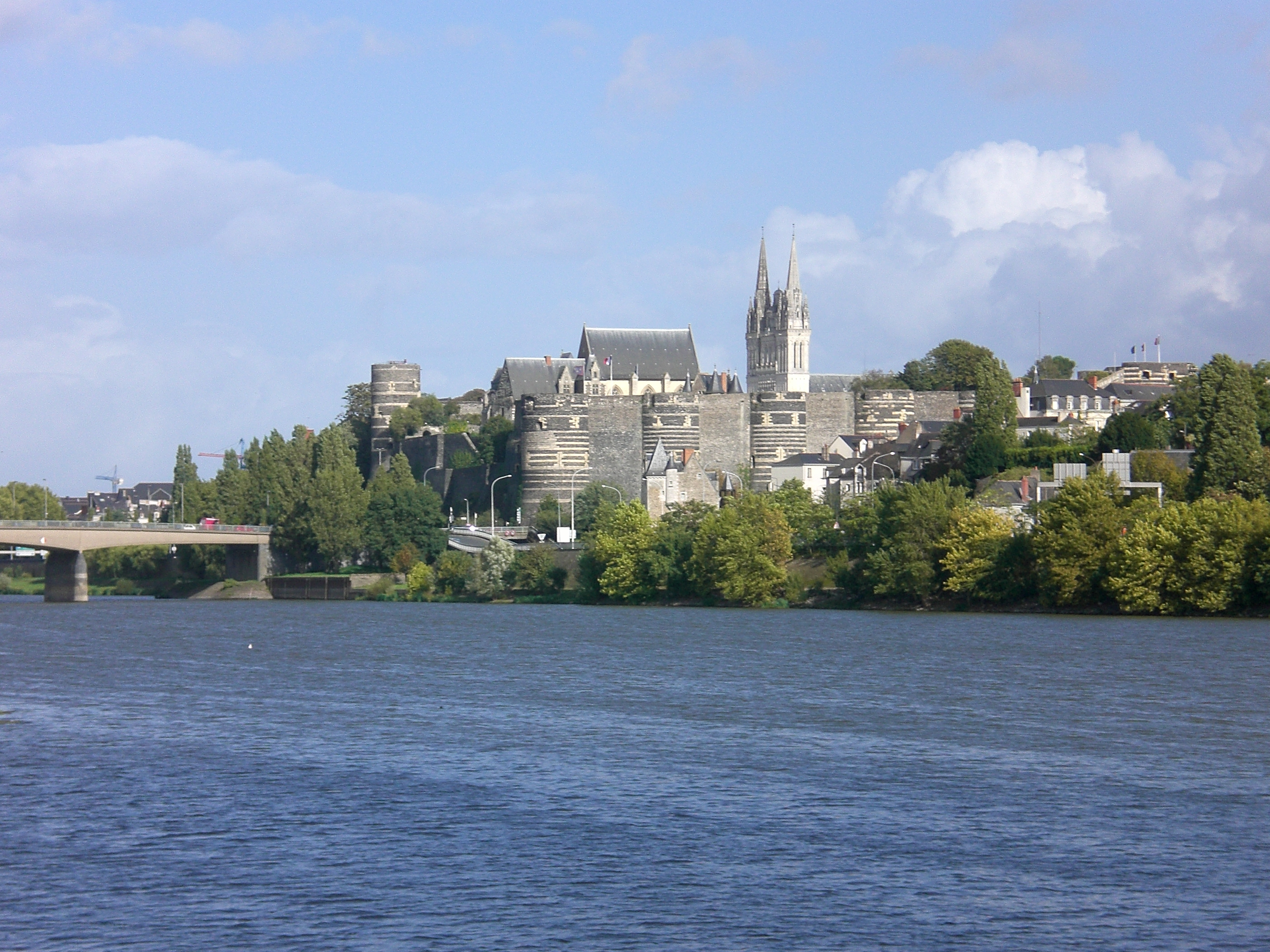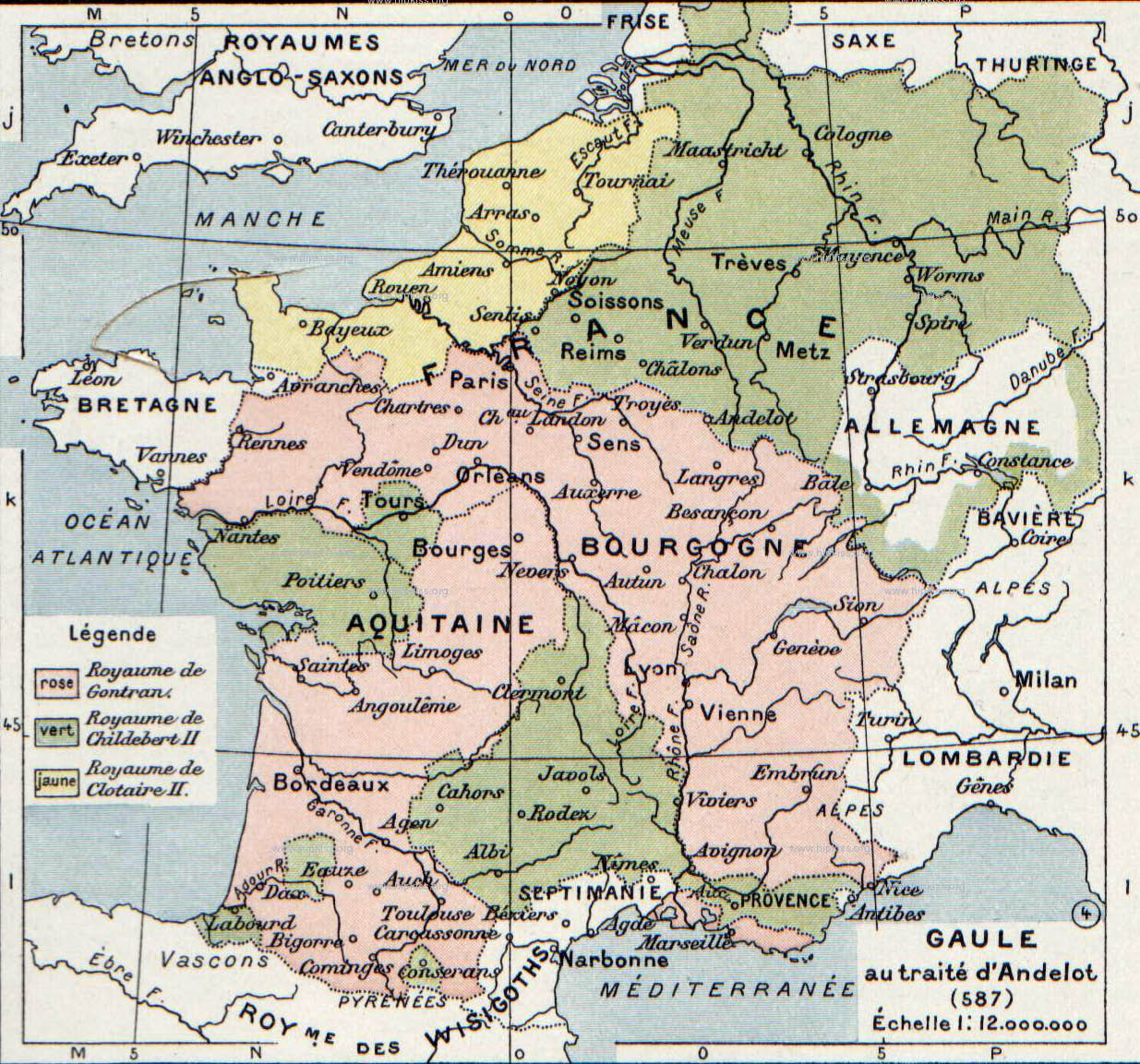|
Licinius Of Angers
Licinius of Angers (also known as Saint Lezin, or Lésin) (c.540–c.610) was a Frankish nobleman and bishop of Angers, celebrated as Catholic saint on 13 February. Lucinius was born about 540 and sent to the court of King Chlothar I when about 20. Chlothar's son King Chilperic I Chilperic I (c. 539 – September 584) was the king of Neustria (or Soissons) from 561 to his death. He was one of the sons of the Frankish king Clotaire I and Queen Aregund. Life Immediately after the death of his father in 561, he en ... made him governor of Angers. Upon the death of Bishop Audouin in about 600, he was also made bishop of Angers by King Chlothar II.Rev. Alban Butler (1866) ''The Lives of the Fathers, Martyrs and Other Principal Saints'' Volume II: p 142 St. Licinius, Confessor He founded a monastery and a Church both dedicated to St John the Baptist, and was buried there. His age at death was said to be 64 and the date 618 by one source, but others state earlier ... [...More Info...] [...Related Items...] OR: [Wikipedia] [Google] [Baidu] |
Franks
The Franks ( la, Franci or ) were a group of Germanic peoples whose name was first mentioned in 3rd-century Roman sources, and associated with tribes between the Lower Rhine and the Ems River, on the edge of the Roman Empire.H. Schutz: Tools, Weapons and Ornaments: Germanic Material Culture in Pre-Carolingian Central Europe, 400-750. BRILL, 2001, p.42. Later the term was associated with Romanized Germanic dynasties within the collapsing Western Roman Empire, who eventually commanded the whole region between the rivers Loire and Rhine. They imposed power over many other post-Roman kingdoms and Germanic peoples. Beginning with Charlemagne in 800, Frankish rulers were given recognition by the Catholic Church as successors to the old rulers of the Western Roman Empire. Although the Frankish name does not appear until the 3rd century, at least some of the original Frankish tribes had long been known to the Romans under their own names, both as allies providing soldiers, and as e ... [...More Info...] [...Related Items...] OR: [Wikipedia] [Google] [Baidu] |
Bishop Of Angers
The Roman Catholic Diocese of Angers (Latin: ''Dioecesis Andegavensis''; French: ''Diocèse d'Angers'') is a diocese of the Latin Rite of the Roman Catholic Church in France. The episcopal see is located in Angers Cathedral in the city of Angers. The diocese extends over the entire department of Maine-et-Loire. It was a suffragan see of the Archdiocese of Tours under the old regime as well as under the Concordat. Currently, the diocese is a suffragan of the Archdiocese of Rennes, Dol, and Saint-Malo. History The first Bishop known in history is Defensor, who, when present in 372, at the election of the Bishop of Tours, made a determined stand against the nomination of Saint Martin. The legend concerning the earlier episcopate of a certain Auxilius, is connected with the cycle of legends that centre about Saint Firmin of Amiens and is contradicted by Angevin tradition from before the thirteenth century. Among the illustrious names of the Diocese of Angers during the first ... [...More Info...] [...Related Items...] OR: [Wikipedia] [Google] [Baidu] |
Chlothar I
Chlothar I, sometime called "the Old" ( French: le Vieux), (died December 561) also anglicised as Clotaire, was a king of the Franks of the Merovingian dynasty and one of the four sons of Clovis I. Chlothar's father, Clovis I, divided the kingdom between his four sons. In 511, Clothar I inherited two large territories on the Western coast of Francia, separated by the lands of his brother Childebert I's Kingdom of Paris. Chlothar spent most of his life in a campaign to expand his territories at the expense of his relatives and neighbouring realms in all directions. His brothers avoided outright war by cooperating with Chlothar's attacks on neighbouring lands in concert or by invading lands when their rulers died. The spoils were shared between the participating brothers. By the end of his life, Chlothar had managed to reunite Francia by surviving his brothers and seizing their territories after they died. But upon his own death, the Kingdom of the Franks was once again divided ... [...More Info...] [...Related Items...] OR: [Wikipedia] [Google] [Baidu] |
Chilperic I
Chilperic I (c. 539 – September 584) was the king of Neustria (or Soissons) from 561 to his death. He was one of the sons of the Frankish king Clotaire I and Queen Aregund. Life Immediately after the death of his father in 561, he endeavoured to take possession of the whole kingdom, seized the treasure amassed in the royal town of Berny and entered Paris. His brothers, however, compelled him to divide the kingdom with them, and Soissons, together with Amiens, Arras, Cambrai, Thérouanne, Tournai, and Boulogne fell to Chilperic's share. His eldest brother Charibert received Paris, the second eldest brother Guntram received Burgundy with its capital at Orléans, and Sigebert received Austrasia. On the death of Charibert in 567, Chilperic's estates were augmented when the brothers divided Charibert's kingdom among themselves and agreed to share Paris. Not long after his accession, however, he was at war with Sigebert, with whom he would long remain in a state of— ... [...More Info...] [...Related Items...] OR: [Wikipedia] [Google] [Baidu] |
Angers
Angers (, , ) is a city in western France, about southwest of Paris. It is the prefecture of the Maine-et-Loire department and was the capital of the province of Anjou until the French Revolution. The inhabitants of both the city and the province are called ''Angevins'' or, more rarely, ''Angeriens''. Angers proper covers and has a population of 154,508 inhabitants, while around 432,900 live in its metropolitan area (''aire d'attraction''). The Angers Loire Métropole is made up of 29 communes covering with 299,500 inhabitants (2018).Comparateur de territoire INSEE Not including the broader metropolitan area, Angers is the third most populous |
Chlothar II
Chlothar II, sometime called "the Young" (French language, French: le Jeune), (May/June 584 – 18 October 629), was king of Neustria and king of the Franks, and the son of Chilperic I and his third wife, Fredegund. He started his reign as an infant under the regency of his mother, who was in an uneasy alliance with Chlothar's uncle King Guntram of Burgundy, who died in 592. Chlothar took power upon the death of his mother in 597; though rich, Neustria was one of the smallest portions of Francia. He continued his mother's feud with Queen Brunhilda of Austrasia, Brunhilda with equal viciousness and bloodshed, finally achieving her execution in an especially brutal manner in 613, after winning the battle that enabled Chlothar to unite Francia under his rule. Like his father, he built up his territories by seizing lands after the deaths of other kings. His reign was long by contemporary standards, but saw the continuing erosion of royal power to the French nobility and the church ... [...More Info...] [...Related Items...] OR: [Wikipedia] [Google] [Baidu] |
6th-century Frankish Bishops
The 6th century is the period from 501 through 600 in line with the Julian calendar. In the West, the century marks the end of Classical Antiquity and the beginning of the Middle Ages. The collapse of the Western Roman Empire late in the previous century left Europe fractured into many small Germanic kingdoms competing fiercely for land and wealth. From the upheaval the Franks rose to prominence and carved out a sizeable domain covering much of modern France and Germany. Meanwhile, the surviving Eastern Roman Empire began to expand under Emperor Justinian, who recaptured North Africa from the Vandals and attempted fully to recover Italy as well, in the hope of reinstating Roman control over the lands once ruled by the Western Roman Empire. In its second Golden Age, the Sassanid Empire reached the peak of its power under Khosrau I in the 6th century.Roberts, J: "History of the World.". Penguin, 1994. The classical Gupta Empire of Northern India, largely overrun by the Huna, ended in ... [...More Info...] [...Related Items...] OR: [Wikipedia] [Google] [Baidu] |
Bishops Of Angers
A bishop is an ordained clergy member who is entrusted with a position of authority and oversight in a religious institution. In Christianity, bishops are normally responsible for the governance of dioceses. The role or office of bishop is called episcopacy. Organizationally, several Christian denominations utilize ecclesiastical structures that call for the position of bishops, while other denominations have dispensed with this office, seeing it as a symbol of power. Bishops have also exercised political authority. Traditionally, bishops claim apostolic succession, a direct historical lineage dating back to the original Twelve Apostles or Saint Paul. The bishops are by doctrine understood as those who possess the full priesthood given by Jesus Christ, and therefore may ordain other clergy, including other bishops. A person ordained as a deacon, priest (i.e. presbyter), and then bishop is understood to hold the fullness of the ministerial priesthood, given responsibility b ... [...More Info...] [...Related Items...] OR: [Wikipedia] [Google] [Baidu] |





